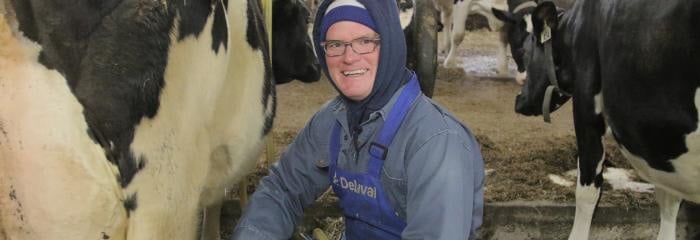Growing Alberta’s turkey sector through diversified production for niche markets
The NFU sent the following letter to Alberta Turkey Producers on May 7, 2018:
Re: Growing Alberta’s turkey sector through diversified production for niche markets
It has come to our attention that the upcoming meeting of the Alberta Turkey Producers Board of Directors may consider reducing the current quota exemption from 300 birds per calendar year produced for direct sales at the farm gate or at farmers’ markets. We would strongly urge you to retain the current quota exemption threshold to ensure that small scale direct-marketers remain viable and able to contribute to Alberta’s economy while promoting turkey consumption through a niche market to customers who might not otherwise purchase turkey.
Just a few weeks ago, the Alberta government tabled Bill 7, Supporting Alberta’s Local Food Sector Act, which encourages the development and success of local food in Alberta. Both commercial-scale quota turkey and quota-exempt direct-marketed turkey are important parts of Alberta’s local food economy and we want both to thrive.
The National Farmers Union is a strong supporter of Supply Management. We want to see this unique Canadian institution remain strong and viable. In our recently published report, Strengthening Supply Management – Defending Canadian control of our market space and advancing food sovereignty, we discuss options for expanding opportunities for local direct marketing:
Consumer interest in, and small farmers’ opportunities for direct marketing are increasing. Farmers Markets and Community Shared Agriculture are some of the structures that support this approach. In most provinces, farmers’ ability to participate in direct marketing of supply-managed products is constrained by low quota-exempt thresholds and/or high minimum quota requirements. This gap is being addressed by some marketing boards, such as Chicken Farmers of Ontario and BC Egg Producers. These programs and processes are models that can be adopted or adapted based on documented experience, according to the situation of each particular commodity and each province’s market conditions.
Licences for specific amounts of production using alternative methods offer a middle ground between minimum quota and quota-exemptions. These mechanisms maintain production discipline and provide the predictability of farmers’ income and buyers’ supply that would be required to support alternative local institutions for food processing, storage and distribution. Floor pricing ensures that the cost-of-production pricing pillar is respected.
Off-quota exemptions should be reviewed and revised in each province and sector where this has not already been done, in the context of revised quota allocation policies that seek to maintain and increase the farmer numbers and diversity of production systems. A multi-stakeholder advisory body could make recommendations to marketing boards regarding quota exemption thresholds, minimum-quota exemptions and intermediate programs involving registered or licensed production. Stakeholders could include small-scale producers, purchasers (restaurants, CSA members), and specialty processors (artisanal cheese-makers).
We are happy to see that Alberta Turkey Producers has new entrant programs for both organic producers and conventional producers serving the retail markets. This is critical to bring in the next generation of commercial turkey farmers. If there are concerns about potential disruption of the quota-based turkey sector due to demand for turkey from outdoor production systems, we would urge you maintain the 300 bird per year quota exemption for small producers and consider the option of a licensing mid-sized producers to serve specific niche markets within the overall supply management system.
Maintaining the 300-bird per year quota-exempt threshold for direct-marketing will allow small-scale farmers to earn enough money to justify their investment in the infrastructure needed to raise turkey in a healthy, outdoor, free-range system. The slower growing breeds used in outdoor production mean higher production costs per bird. Reducing the maximum quota-exempt flock size would have a devastating impact, as it would make turkey production for direct-marketing less viable or even impossible. If maximum quota-exempt flock size is cut, these farmers will lose an important income source and their customers would no longer be able to buy the kind of turkey they prefer.
Reducing the number of turkeys a small producer/direct marketer can raise annually runs counter to the goal of championing local food in Alberta. Ensuring small producers can raise and market up to 300 birds per year encourages local food production, supports family farm incomes and offers Alberta consumers increased product choices. In conclusion, we urge you to leave the 300 bird quota-exempt threshold in place.
Respectfully,
[signed]
Glenn Norman
National Farmers Union Region 7 (Alberta) Board membercc: Brent McEwan, General Manager, Alberta Agricultural Products Marketing Council
Hon. Oneil Carlier, Minister of Agriculture and Forestry
